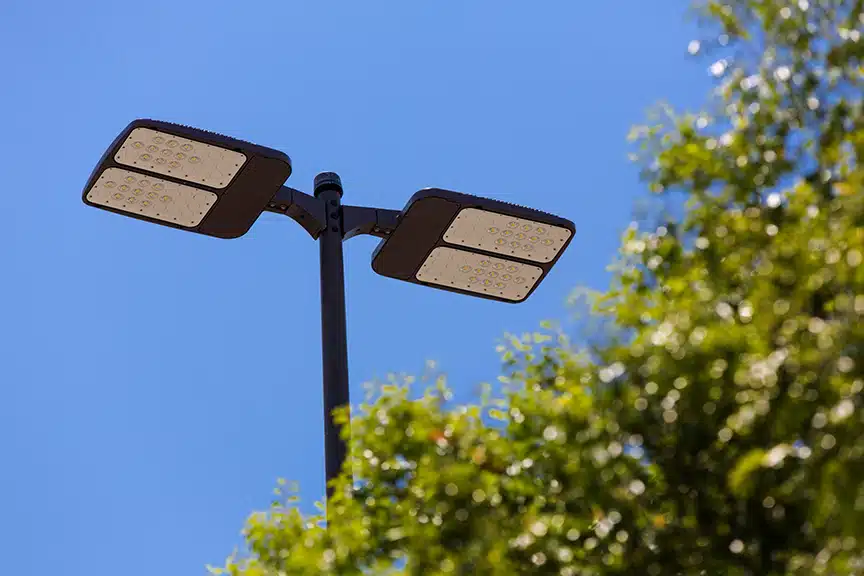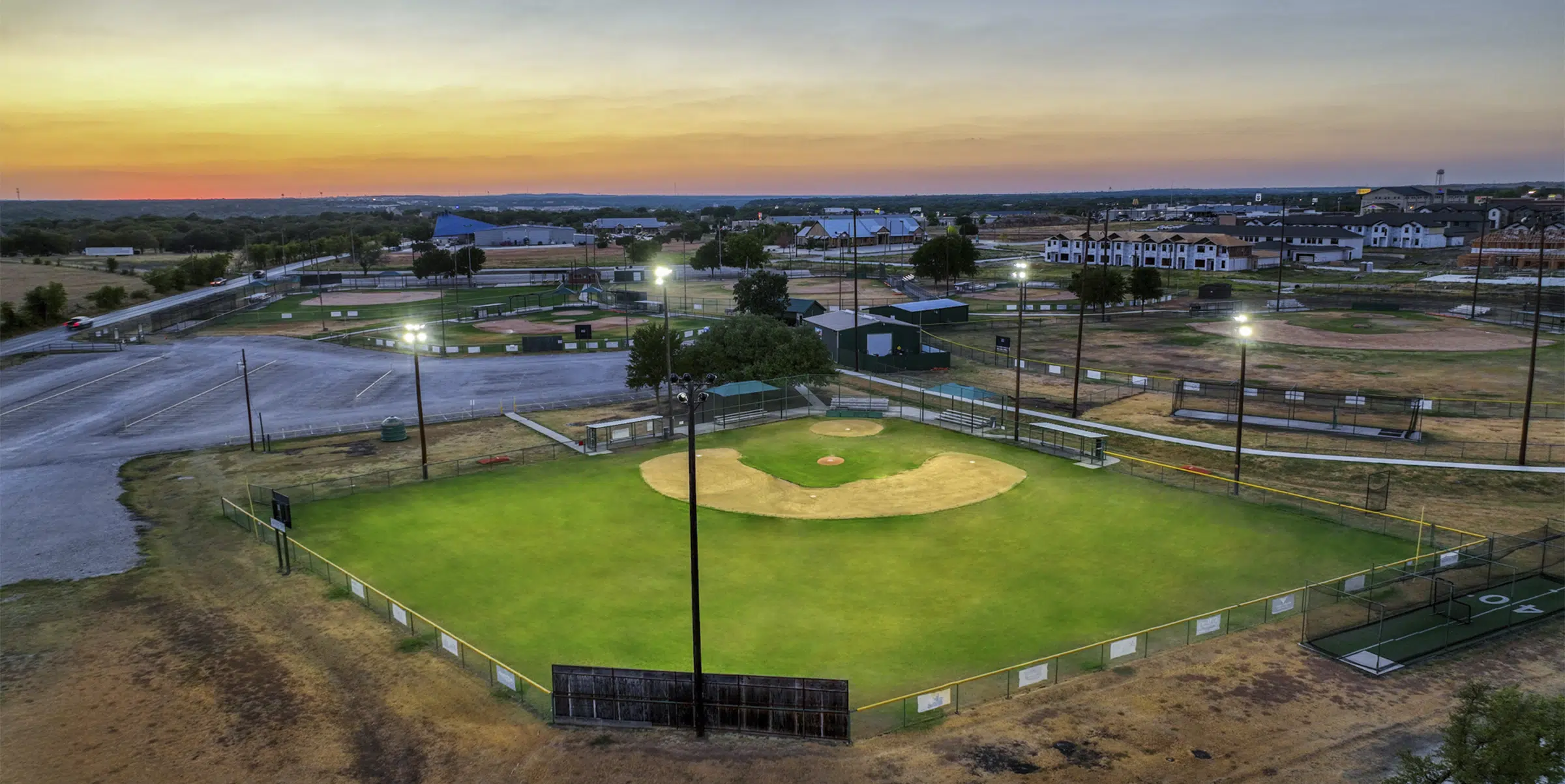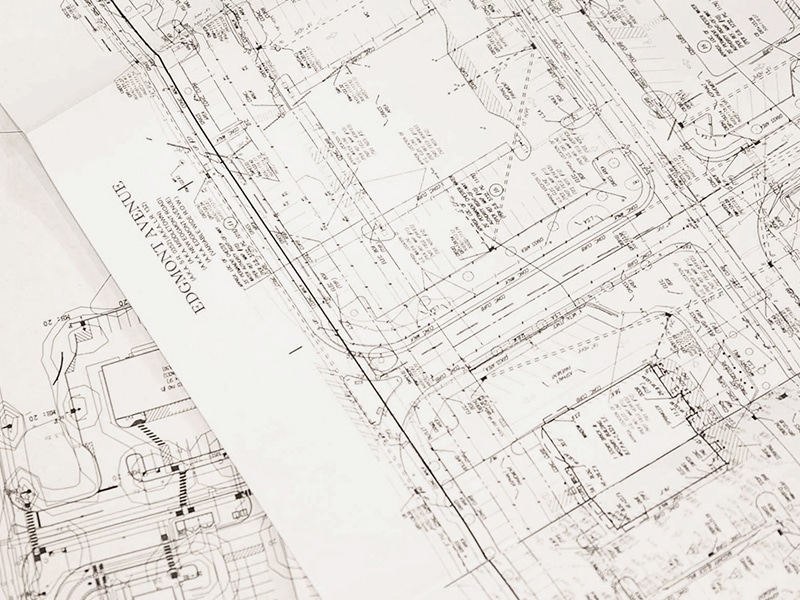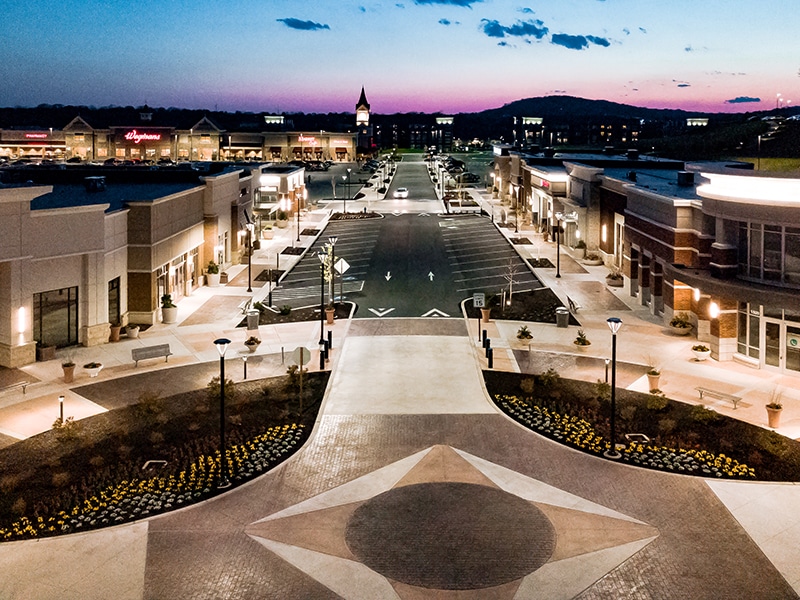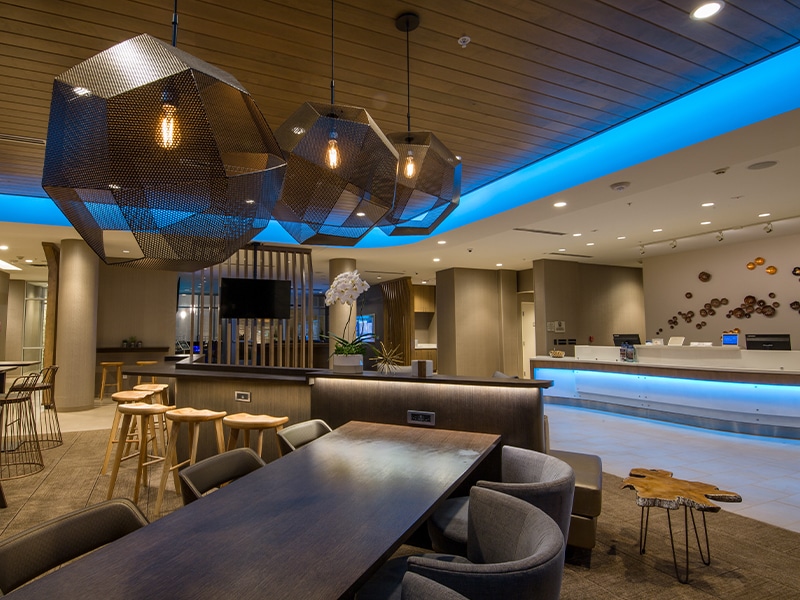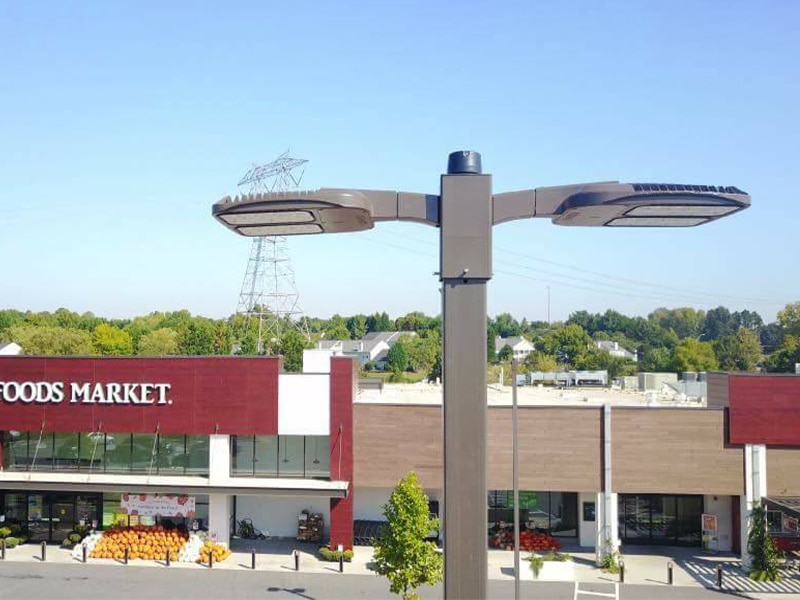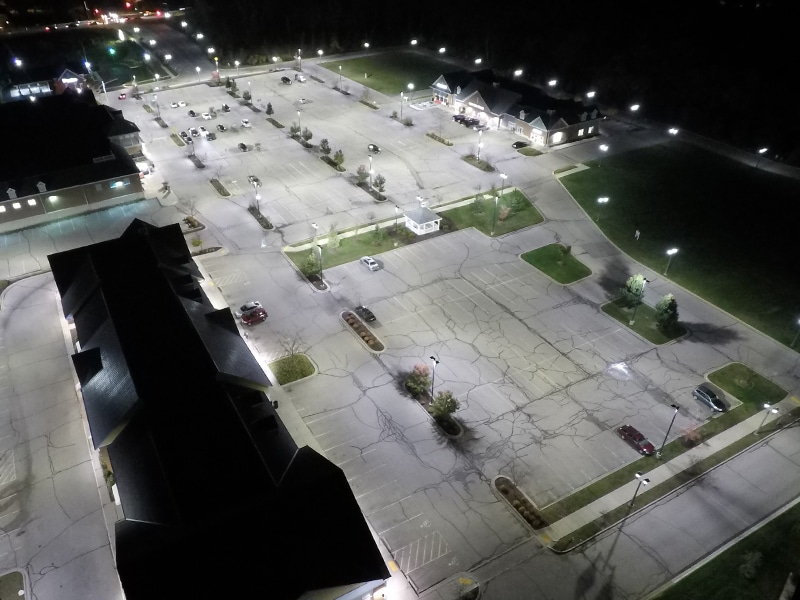At WLS, we share our customers’ commitment to the sustainability of the communities they serve.
Our sustainability mission reflects this commitment:
Through our business practices, our products, and our people, we are working toward building that future, one lighting project at a time.
Through our highly energy-efficient products and sustainable business practices, WLS enables our customers to realize significant Scope 2 emissions reductions. Our efforts to quantify and reduce emissions throughout our supply chain makes us an ideal partner for companies seeking to expand their ESG efforts to Scope 3.
Simply More Sustainable
When you work with WLS, you get a partner who can advance your sustainability mission while reducing costs.
Here’s a snapshot of our environmental impacts to date:
KWh Saved
Tons of CO2 Emissions Avoided
This Is Equivalent to:
Miles Driven in an Average Gasoline-Powered Passenger Vehicle
Tons of Waste Recycled Instead of Landfilled
Acres of Carbon Sequestered Forest
(netLiNK system-wide savings based on real-time data and EPA greenhouse gas equivalencies)
Our Business Practices
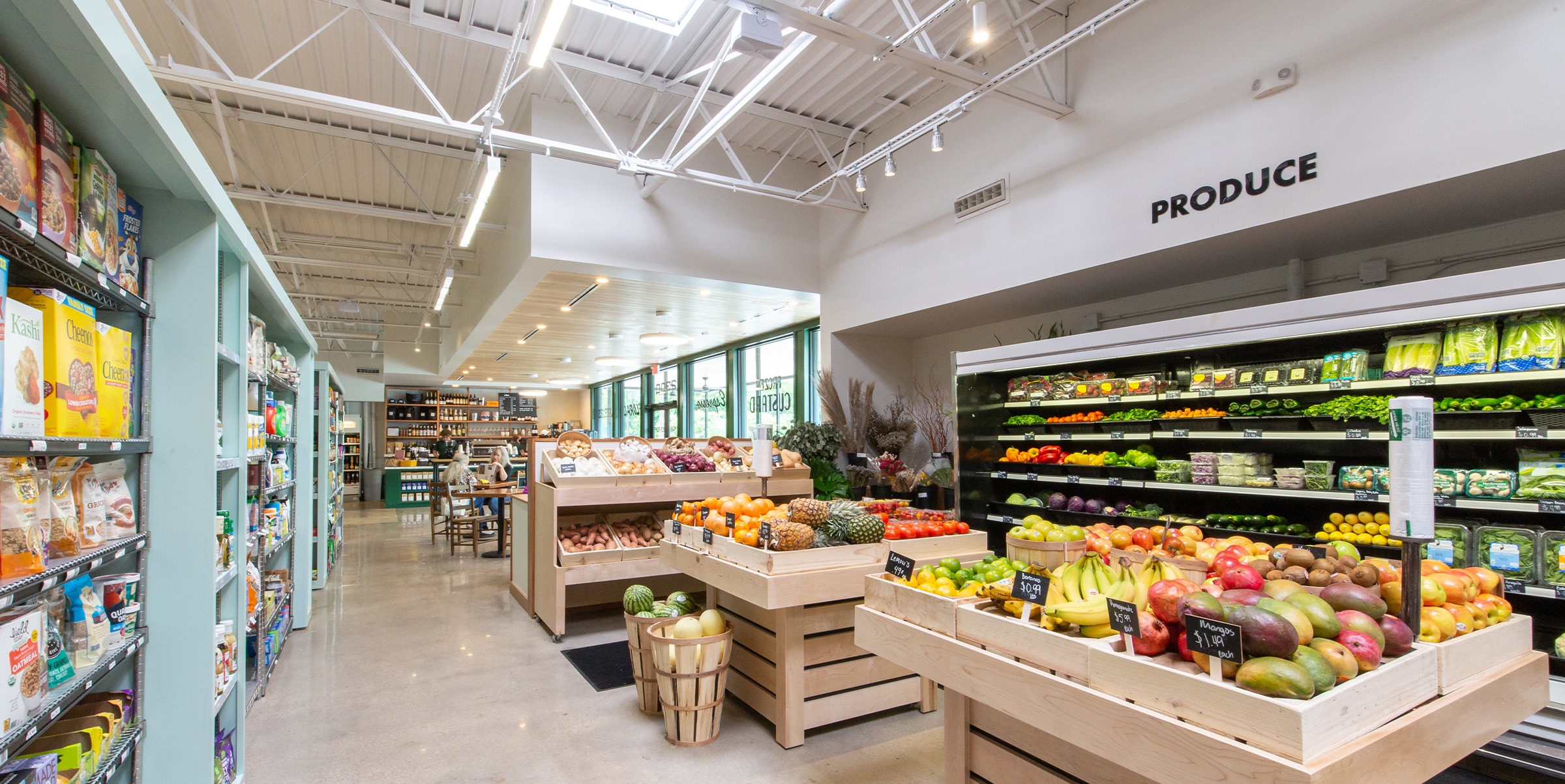
Our mission is to help our customers improve their lighting systems, making them more energy-efficient and cost-effective. Working with WLS, our customers can achieve up to 80% reduction in their energy usage, resulting in significant savings on energy usage and operating costs. These savings help to reduce our customers’ Scope 2 emissions as they consume drastically less energy from the grid.
Our commitment to the environment means that when we perform an LED upgrade, we consider the full life cycle of our customers’ former lighting system. We recycle old fixtures and reuse poles wherever possible, and reduce waste at every opportunity during installation. When upgrading lighting from metal halide fixtures — which contain hazardous materials such as mercury — we dispose of these materials in a responsible manner, meeting or exceeding local regulations.
Environmental Responsibility
Our commitment to the environment means that we take great care to consider the full life cycle of our customers’ former lighting systems when performing an LED upgrade. We believe that recycling and reuse are crucial components of our process; We recycle old fixtures and reuse poles wherever possible. We strive to minimize waste during installation, taking measures to reduce packaging, as well as recycling any materials that cannot be reused.
WLS purchases top-tier, American-made LED fixtures that can last up to 10 times as long as traditional metal halide fixture. That’s 10 fewer trips a service company has to make, often in a diesel-powered bucket truck, to replace those fixtures. The cumulative effect of all 7,000 projects installed by WLS, in terms of reduced carbon emissions, is staggering — and continuously growing.
Environmental Benefits of Commercial LED Fixtures
When upgrading lighting from metal halide fixtures, which contain hazardous materials such as mercury, we dispose of these materials in a responsible manner, meeting or exceeding all local regulations. Our focus on responsible disposal ensures that hazardous materials are kept out of landfills and other areas where they could pose a risk to human health and the environment.
We take pride in our commitment to the environment and our dedication to providing sustainable lighting solutions that benefit both our customers and the planet. Our team of experts is always available to assist you in making the switch to energy-efficient lighting and reducing your carbon footprint. We believe that every small step towards sustainability can make a big difference, and we are committed to helping our customers achieve their sustainability goals through our services.
LED commercial fixtures offer significant environmental benefits:
- No mercury
- Resilient against extreme weather
- Higher luminaire efficiency and lower optical losses than metal halide fixtures
- Significantly less heat generated compared with conventional lighting
- Operating life of 50,000-100,000 hours (compared with 20,000 hours for metal halide)
Since we source our products primarily from US-based manufacturers, there are significantly less downstream Scope 3 emissions associated with shipping and distribution. We are in the process of implementing a sustainable supply chain program. In the interim, we can provide product details to our customers on request.
Our People
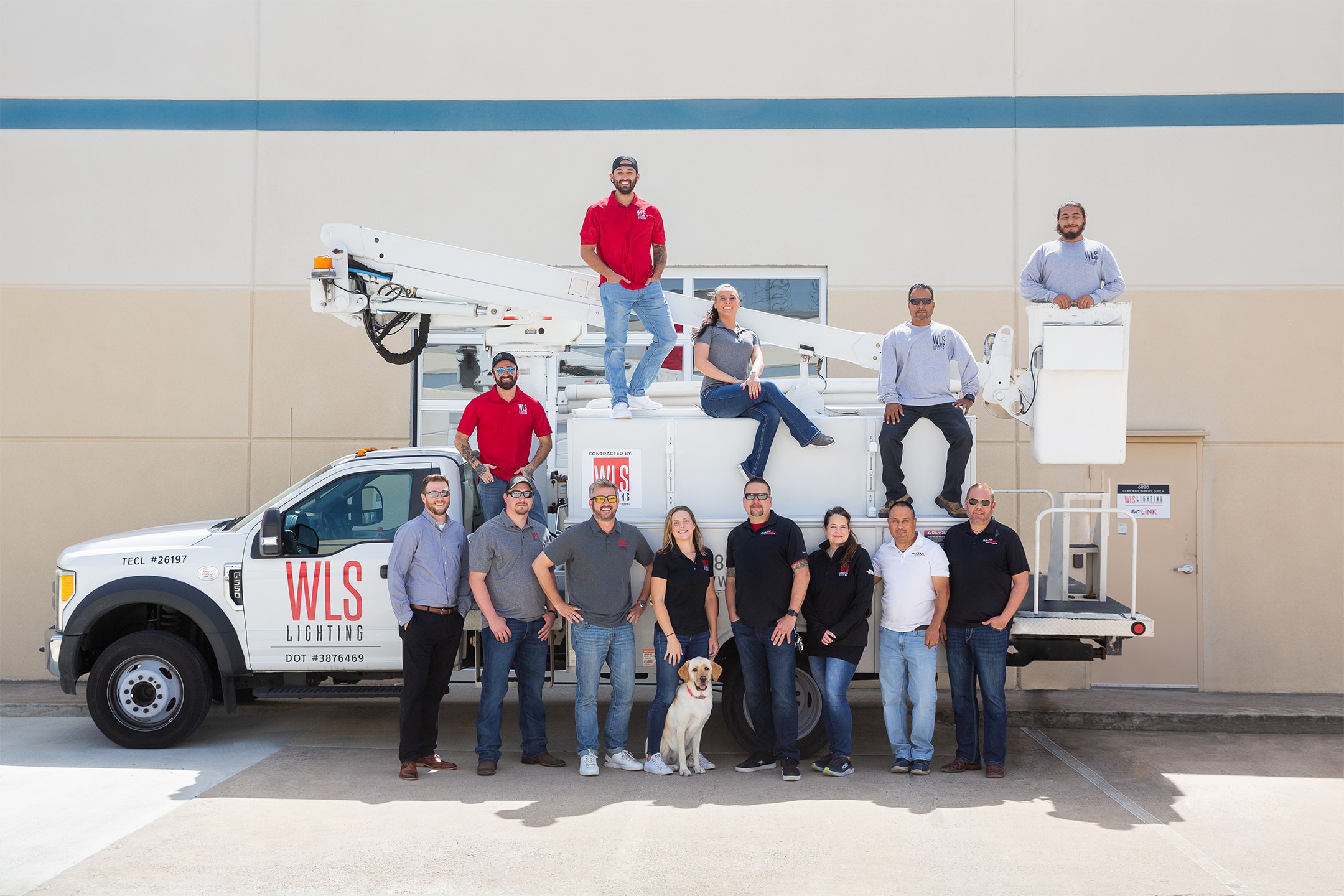
At WLS, we believe in treating our people fairly and promote a healthy work-life balance. Our company headquarters and warehouse are located in Fort Worth, Texas, however 95% of our staff work remotely. We provide all necessary equipment and a healthy remote-work reimbursement policy. We are proud to offer our employees competitive compensation, including cost of living increases as a result of recent inflation and rising gas prices. We provide incentive compensation plan bonuses, a generous 401k match, and contribute a large percentage of our employees’ health insurance premiums.
Our employees represent a multitude of backgrounds and experiences, and we value this diversity because it makes us a stronger company overall. We promote and support human rights, including equal employment opportunities. WLS is committed to ensuring that our employees are treated with respect, and this extends to our suppliers. We do not do business with suppliers who have known violations of human rights or forced labor. Working with U.S.-based suppliers ensures that our products are made in accordance with US labor laws.
Building Stronger Communities
We believe in contributing to the communities where we live and operate. Every year, we provide lighting services and donate lighting products to a community organization in need. In 2022, WLS installed new LED lighting fixtures at the Aledo Athletics baseball complex. Aledo Athletics Inc. is a non-profit organization located in Aledo, Texas, that hosts recreational youth baseball and softball for the local community.
In addition, we honor employees’ requests for charitable donations for causes they hold dear. In the past these organizations have included American Forests, the Children’s Cancer Relief Fund, the Michael J. Fox Foundation, the MD Anderson Center and the Organization for Autism.

